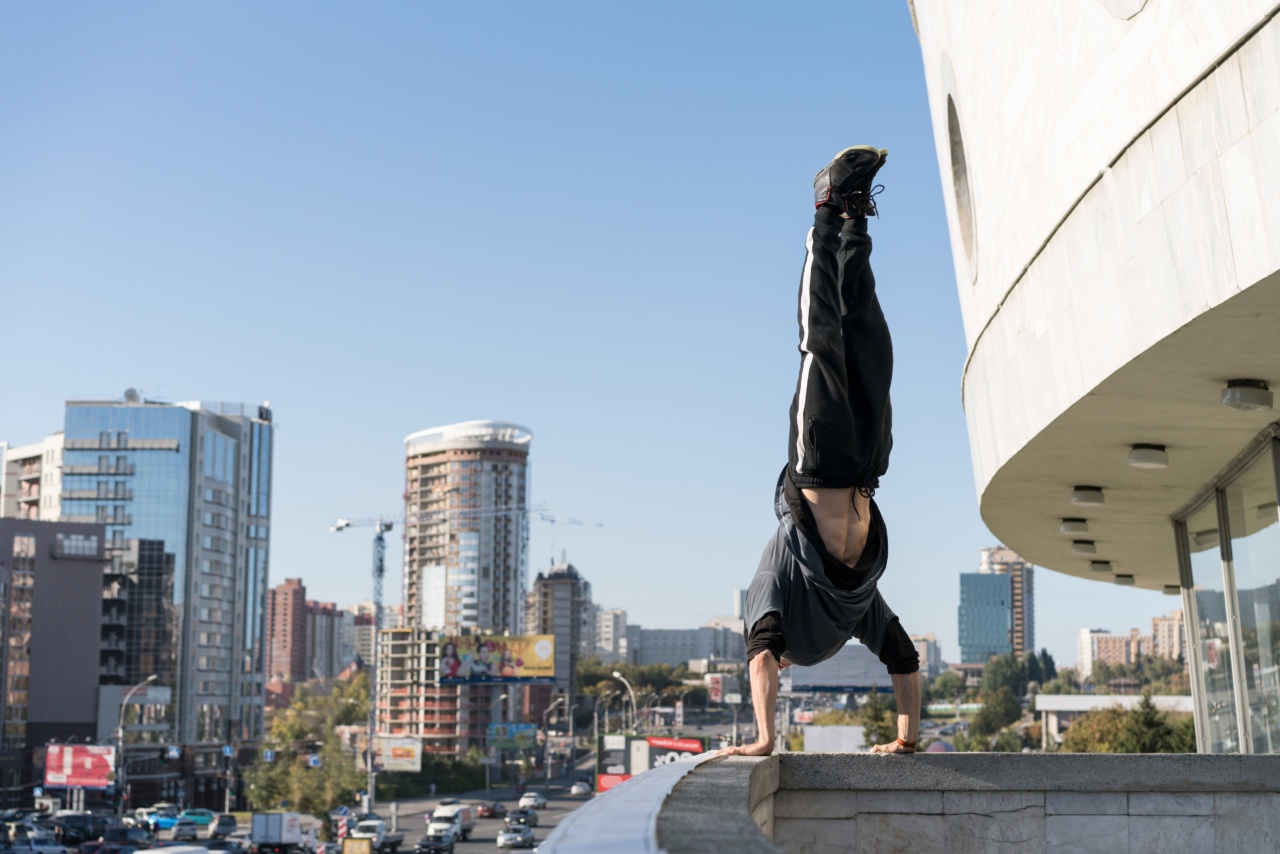Dizziness during exercise can be a common occurrence for many individuals. It is often attributed to factors such as dehydration, overheating, or overexertion. While dizziness may seem like a minor inconvenience, it can actually be quite dangerous.
In this article, we will explore why dizziness during exercise should not be taken lightly and the potential risks associated with it.
The Causes of Dizziness During Exercise
Before delving into the dangers of dizziness during exercise, it is important to understand the various causes that can lead to this sensation. Some of the common factors contributing to dizziness include:.
1. Dehydration
Dehydration occurs when the body loses more fluid than it consumes. During exercise, especially in warm environments, perspiration increases, causing the body to lose water and essential electrolytes.
When the body is dehydrated, blood volume can decrease, leading to a drop in blood pressure and a decreased supply of oxygen to the brain. This lack of oxygen can result in dizziness or lightheadedness.
2. Overheating
Exercising in hot and humid conditions can cause the body’s core temperature to rise rapidly. When this happens, blood vessels near the skin dilate to release heat, diverting blood away from the brain and vital organs.
This redirection of blood flow can result in dizziness as the brain receives less oxygen and nutrients.
3. Low Blood Sugar
Low blood sugar, also known as hypoglycemia, can occur during or after intense exercise. The body relies on glucose as its primary fuel source during physical activity.
However, if glucose levels become too low, it can lead to dizziness, weakness, and even fainting.
4. Overexertion
Pushing oneself beyond their physical limits during exercise can lead to overexertion. Overexertion can cause the muscles to fatigue rapidly, resulting in decreased blood flow to the brain.
This reduced blood flow can cause dizziness, nausea, and even loss of consciousness.
The Dangers of Dizziness During Exercise
Dizziness during exercise may seem like a temporary inconvenience, but it can have severe consequences if ignored or not properly addressed. Some of the dangers associated with dizziness include:.
1. Risk of Falls
Dizziness can affect an individual’s balance and coordination, increasing the risk of falls and injuries during exercise.
Falls can result in fractures, sprains, and other serious injuries, especially when engaging in activities that require balance, such as running or cycling.
2. Feeling Faint or Passing Out
In severe cases, dizziness can progress to a feeling of faintness or even lead to loss of consciousness. When this happens, the risk of injury is significantly heightened, as an individual has no control over their body.
Fainting can occur suddenly and without warning, putting the individual and those around them in potential danger.
3. Heatstroke
If dizziness during exercise is caused by overheating, it may be an early sign of heatstroke. Heatstroke is a potentially life-threatening condition characterized by a rapid increase in body temperature and the inability to regulate it.
If left untreated, heatstroke can lead to organ failure and even death.
4. Increased Risk of Accidents
Dizziness can impair cognitive function and reaction time, making it more likely for individuals to make mistakes or have slower reflexes.
This can be particularly dangerous when exercising in high-impact environments, such as a busy gym or during team sports, where split-second decisions may be required to avoid accidents.
Taking Precautions to Prevent Dizziness During Exercise
While dizziness during exercise can pose significant risks, there are several precautions individuals can take to minimize the chances of experiencing it. Some of these precautions include:.
1. Stay Hydrated
Ensuring adequate hydration before, during, and after exercise is essential to prevent dizziness caused by dehydration.
Drink plenty of fluids, especially water, and consider sports drinks that replenish electrolytes lost through sweat during intense workouts.
2. Gradual Warm-up and Cool-down
Start every exercise session with a gradual warm-up and end with a cool-down period. This allows the body to adjust to the elevated demands and gradually recover, reducing the risk of dizziness.
3. Monitor Blood Sugar Levels
If you are prone to low blood sugar episodes, it is advisable to monitor your blood glucose levels before, during, and after exercise.
You may need to adjust your food intake or consume a small snack such as a piece of fruit or a granola bar to maintain stable blood sugar levels.
4. Listen to Your Body
If you start feeling lightheaded or dizzy during exercise, it is crucial to listen to your body and take a break. Pushing through the discomfort may worsen the symptoms and increase the risk of accidents or injuries.
When to Seek Medical Attention
In some instances, dizziness during exercise may be a sign of an underlying medical condition that requires medical attention. It is recommended to seek immediate medical attention if the dizziness is accompanied by the following:.
1. Chest Pain
Any form of chest discomfort during exercise should not be ignored, especially if it is accompanied by dizziness. It could be an indication of an underlying heart condition that requires medical evaluation.
2. Severe Headaches
If dizziness is accompanied by severe headaches or migraines during exercise, it is advisable to consult a medical professional. These symptoms could be indicative of an underlying neurological issue that needs to be addressed.
3. Shortness of Breath
Experiencing difficulty breathing or shortness of breath alongside dizziness could be a sign of a respiratory problem. Seeking medical attention is highly recommended in such cases.
Conclusion
While dizziness during exercise may seem like a temporary inconvenience, it should not be taken lightly. It is crucial to address the underlying causes and take necessary precautions to prevent any potential dangers associated with dizziness.
By staying hydrated, listening to your body, and seeking medical attention when necessary, you can ensure a safer and more enjoyable exercise experience.





























